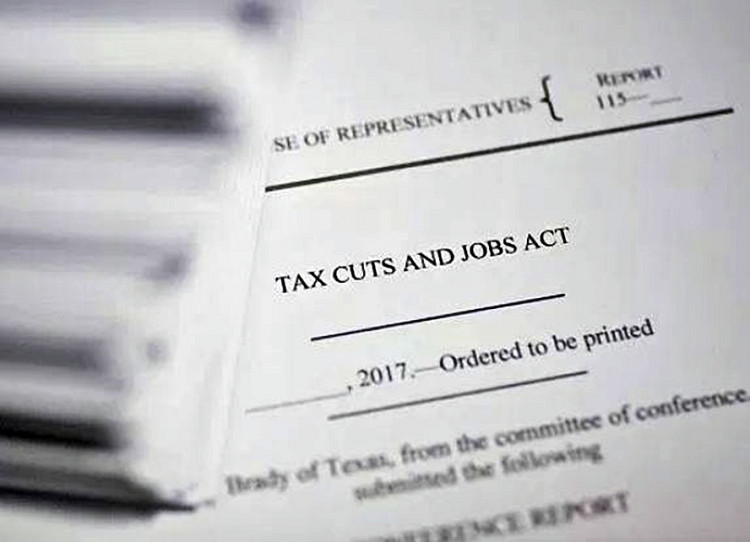The mammoth $1.5 trillion tax cut gifted by the Trump administration to American business firms via the controversial Tax Cuts and Jobs Act (TCJA) of 2017 has neither boosted capital spending nor goaded firms into hiring more employees.
TCJA, the biggest overhaul of the U.S. tax code in more than 30 years, has instead seen firms stick to their previous plans while amassing the benefits it provides, said a report by the National Association for Business Economics (NABE).
In its quarterly business conditions poll, NABE revealed that 84 percent of respondents saying they had not changed plans despite the inflow of money resulting from TCJA. This result compares to 81 percent in the previous survey published in October.
"A large majority of respondents, 84 percent, indicate that one year after its passage, the corporate tax reform has not caused their firms to change hiring or investment plans," said NABE President Kevin Swift.
NABE is the world's largest international association of applied economists, strategists, academics, and policy-makers dedicated to the application of economics in government and the private sector.
The NABE report confirms the failure of 'trickle-down economics" to deliver growth that should have come about because corporations have more money to spend and invest. Economists who criticized TCJA said there is no reason to believe that corporate rate cuts will trickle down to anyone. Companies will, instead, use the extra money to buy back shares or pad the pay of their management teams.
Surprisingly, the NABE survey revealed a further slowdown in business spending. The survey's measure of capital spending plummeted in January to its lowest level since July 2017. Expectations for a rise in capital spending over the next three months were also dashed.
Fewer firms increased capital spending compared to the October survey responses, said Swift. He noted that the cutback appeared to be concentrated more in structures than in information and communication technology investments.
The drop in capital spending was predicted. The nonpartisan Congressional Budget Office (CBO) reported that under TCJA, individuals and S corporations will receive about $1,125 billion in net benefits over 10 years. Corporations will receive around $320 billion in benefits.
The CBO estimates that implementing TCJA will add a $2.29 trillion to the national debt over 10 years] or $1.9 trillion.
Trump's White House predicted that the massive fiscal stimulus package arising from TCJA would boost business spending and job growth.






